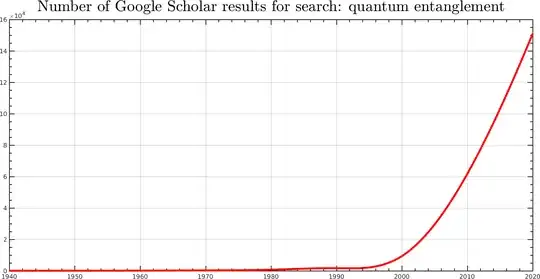Schrödinger wrote a letter to Einstein after the 1935 EPR paper, and in that letter Schrödinger used the German word "Verschränkung" which translates into "entanglement", but when was the word first used in English?
Schrödinger's 1935 paper written in English, called Discussion of Probability Relations between Separated Systems, says (according to Wikipedia) "I would not call [entanglement] one but rather the characteristic trait of quantum mechanics, the one that enforces its entire departure from classical lines of thought" which means the concept was there but it whatever word he used for it was not entanglement (hence the square brackets). Unfortunately I do not have access to the full paper.
